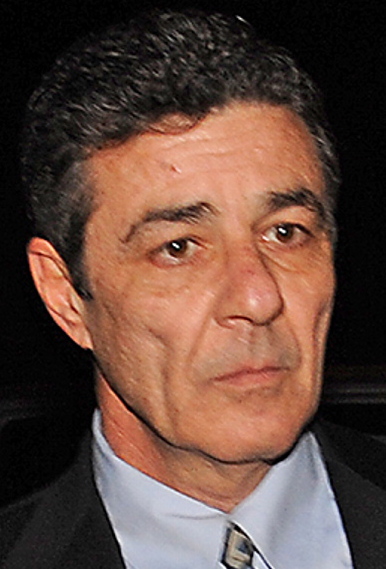NEW YORK — Frank DiPascali, the finance chief for Bernard Madoff who turned on former colleagues to cooperate with the federal government, has died before he could be sentenced for his role in the biggest Ponzi scheme in U.S. history. He was 58.
He died May 7, his lawyer Marc Mukasey said Sunday in an emailed statement. The cause was lung cancer.
“He was grateful to have been able to make some amends by helping the government these past few years,” Mukasey said.
DiPascali joined Madoff’s firm as a teenager, without formal finance training, before going on to assist in the $17.5 billion fraud. He was the star government witness in its prosecution of five employees of Madoff, who is serving a 150-year sentence in federal prison.
A jury found all five defendants guilty on all 30 counts, though the judge in their trial assailed testimony by DiPascali, saying it was largely unbelievable. Defense lawyers said he was far more culpable for the fraud than their clients.
DiPascali, who called himself Madoff’s “right-hand man,” is a “glib storyteller and an admitted and convicted perjurer,” U.S. District Judge Laura Taylor Swain said in Manhattan federal court last year.
DiPascali was the highest-ranking Madoff aide to testify at the trial, the only one ever conducted on the Ponzi scheme, which collapsed after Madoff’s arrest on Dec. 11, 2008. The five former employees were convicted of aiding the fraud for decades and getting rich in the process. They were sentenced to between 2½ and 10 years in prison.
Madoff, 77, pleaded guilty in 2009. At least seven others also pleaded guilty, including his brother Peter Madoff, who is serving a 10-year term.
DiPascali, who faced as long as 125 years in prison at sentencing, was seeking leniency by testifying against his former colleagues, all of whom claim they were duped by him and Madoff into believing his business was legitimate. Their lawyers claimed DiPascali was lying to win less time behind bars.
The other defendants are Joann Crupi, who managed large accounts; Annette Bongiorno, who ran the investment advisory unit; Daniel Bonventre, Madoff’s ex-operations chief; computer programmers Jerome O’Hara and George Perez, who allegedly wrote code to print millions of fake account statements and trade confirmations as it grew rapidly in the 1990s.
“In my nearly eight years as a federal prosecutor, I have dealt with dozens of cooperating witnesses. None of them compare to Frank DiPascali,” Julian Moore, a former federal prosecutor who worked on the Madoff case, said in an email. “He was strongly committed to providing truthful information that assisted the government in its criminal prosecutions and monetary recoveries.”
DiPascali was born on Oct. 28, 1956, in the Howard Beach neighborhood of Queens, New York, according to public records. He attended Archbishop Molloy High School in New York. He joined Madoff’s firm in 1975, when he was 19.
Questioned about when he learned Madoff was orchestrating a monumental fraud, DiPascali offered differing accounts.
He told prosecutors at one point that he knew about the fake trading “for as long as I could remember.” Later, he testified he didn’t know until 1992, the year Madoff and his inner circle devised a wide-ranging scheme to trick the Securities and Exchange Commission about the nature of the firm’s trading.
DiPascali has said that, even after he discovered the trades were fake, he believed Madoff was investing client funds in other ways, including in real estate deals and French banks.
He had also said he didn’t realize Madoff was running a Ponzi scheme – paying investors with money from other investors –until Madoff confessed to him in the days before his arrest.
To perpetrate the scheme, the five defendants convicted in last year’s trial used millions of fake trading confirmations and false account statements to trick customers into believing their money was being used to buy securities – under the direction of Madoff and DiPascali.
No trading took place in the investment business, which collapsed when Madoff ran out of money to pay withdrawals.
DiPascali agreed with a defense lawyer during testimony last year that he had lied to several of the defendants at various times to prevent them from discovering the fraud, including when the group created fake trading records to trick regulators and auditors. He even agreed on the witness stand that he was good at fooling people.
His admitted flaws notwithstanding, prosecutors acknowledged his efforts to come clean.
“Unlike so many he helped to convict, he, at least, did his best to right his many wrongs and fully accepted his key role in this devastating fraud,” Moore said. “Understandably, this will be cold comfort to many victims of the fraud, but it does provide a small measure of redemption.”
Send questions/comments to the editors.



Success. Please wait for the page to reload. If the page does not reload within 5 seconds, please refresh the page.
Enter your email and password to access comments.
Hi, to comment on stories you must . This profile is in addition to your subscription and website login.
Already have a commenting profile? .
Invalid username/password.
Please check your email to confirm and complete your registration.
Only subscribers are eligible to post comments. Please subscribe or login first for digital access. Here’s why.
Use the form below to reset your password. When you've submitted your account email, we will send an email with a reset code.